18 May 2022
The COVID-19 pandemic was a call to arms for many researchers who had been working in related fields. For Olga Palmer it was an opportunity to apply her research background in immunology and infectious diseases to a situation that demanded urgent answers.
“It’s been stressful and difficult but at the same time it's been so exciting and interesting. It will probably be the most important work I will ever do in my life. There's nothing more important than working on a pandemic in a pandemic. I remind myself of this while I continue to work on it, especially when things get difficult,” says Olga Palmer.
Olga is a Research Officer at the Malaghan Institute and part of the Vaccine Alliance Aotearoa New Zealand – Ohu Kaupare Huaketo (VAANZ) research team. Established in 2020 as part of the Government’s vaccine strategy, Olga and other researchers have been working relentlessly for more than two years to develop homegrown booster vaccines that will be effective against current and future SARS-CoV-2 variants and related coronaviruses. Olga is currently helping conduct preclinical trials on several vaccine candidates.
She describes the tumultuous nature of COVID-19 research, especially during the first year of the pandemic.
“Due to the uncertainty of the pandemic, the whole situation was constantly evolving. From one week to another, my notes from previous meetings and planned experiments would suddenly become obsolete because the situation had changed.”
A key part of this was keeping up to date with research that was being conducted internationally. Since research on COVID-19 has been a priority globally, this meant new findings would come flooding in every day.
“The rate of progress was astounding. We’d have to be constantly on our toes to try to anticipate what was coming next,” says Olga.
“It’s settled down a bit recently but it’s still so dynamic. It doesn’t look like it will be finishing any time soon. Typically for a research project, you know when your contract is going to end. With this, we have no idea.”
While undertaking vaccine research in a pandemic was intense, it wasn’t a drastic leap from her pre-pandemic work as a research officer on mucosal vaccines for influenza.
Mucosal vaccines are administered as a spray which is inhaled through the nose. They may help to provide protection from respiratory pathogens such as COVID-19 and influenza as the immune response is generated at the site if viral entry.
“There hasn’t been a lot of work done on mucosal vaccines and characterising the immune response,” says Olga.
In her earlier research, she was investigating which adjuvants were most effective at activating specific immune cell responses. Adjuvants are substances that are added to vaccines, to alert the immune system to respond to the vaccine. Olga’s knowledge of adjuvants and experience in vaccine testing was readily translatable to COVID-19 vaccine development.
“That is the nature of research. You follow that lead and see where it goes. From each lead, you branch out as a result of all the questions that emerge and changing circumstances.”
Even though she can’t imagine a life without science now, Olga didn’t always want to be a scientist.
“I went into high school with the kind of aspirations to become a lawyer or a businesswoman. I loved the idea of wearing a nice suit and trotting around. So I took economics and similar subjects.”
Then in year 10, Olga had a particularly influential science teacher at Hutt Valley High School, Amanda Gibbs, who signed her up to an open day at Victoria University of Wellington. After a full day carrying out quirky science experiments including extracting strawberry DNA and reacting chemicals to make glow sticks, Olga quickly became an aspiring scientist.
“That was a defining moment in my life. I remember on the way back home thinking ‘I want to do science’. It's just so much cooler than I thought and so interesting. Even though it was quite a shallow look into the subject, it was enough for me to completely change my mind.”
Olga was fascinated with infectious diseases from early on in her scientific studies. How does a healthy body become not healthy through the actions of such tiny organisms? She was shown both halves of the spectrum during her studies: the biology of bacteria and viruses and the biology of our immune system which deals with said bacteria and viruses.
“You need an understanding of both these systems and how they interact to truly appreciate either of them,” says Olga.
Instead of a prim business suit like she’d dreamed of as a teenager, Olga now sports a crisp, white lab coat while she tries to unlock specific ways to engage the immune system to fight infectious diseases.
Related articles
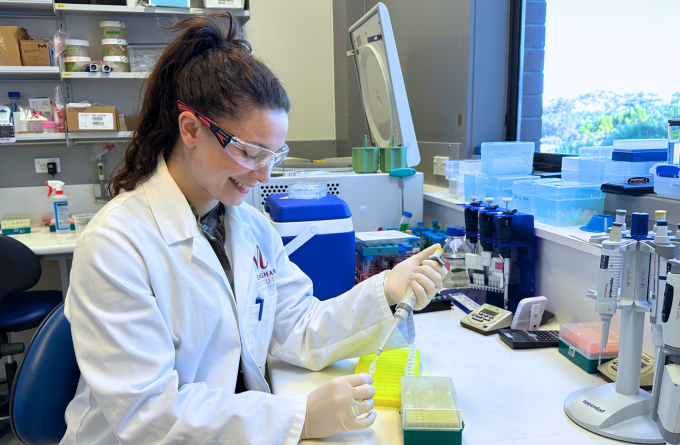
In Focus: Mapping the lung's fight – how the entire organ responds to infection
18 April 2024
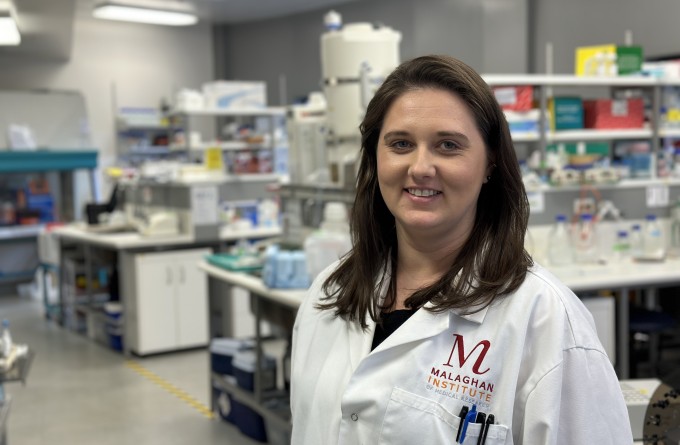
Malaghan and National Institutes of Health research receives prestigious award
5 March 2024
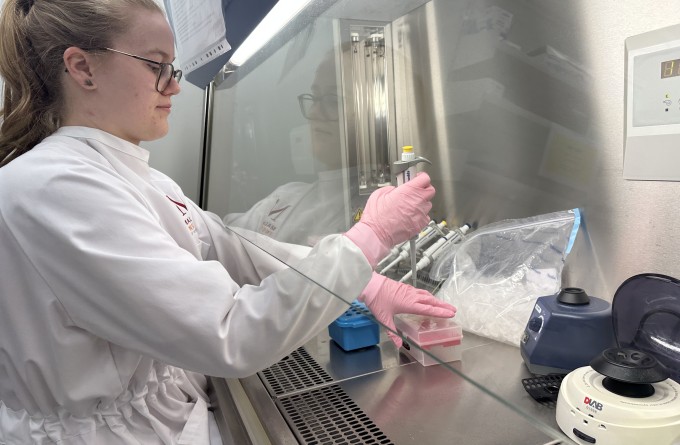
In Focus: Tailoring mRNA vaccines for immunocompromised populations
14 December 2023
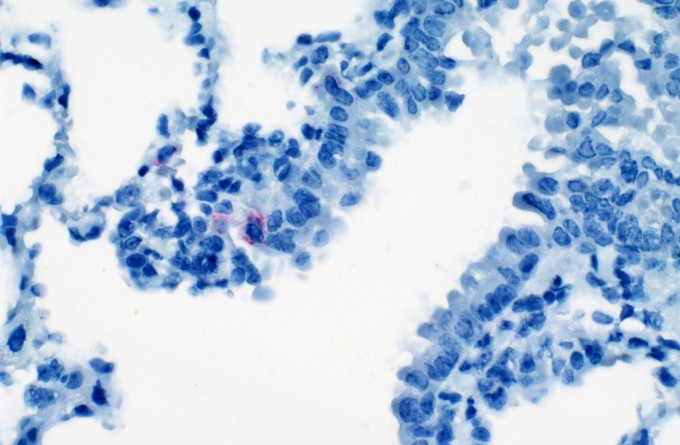
Scientists identify interferon-gamma as potential SARS-CoV-2 antiviral
13 December 2023
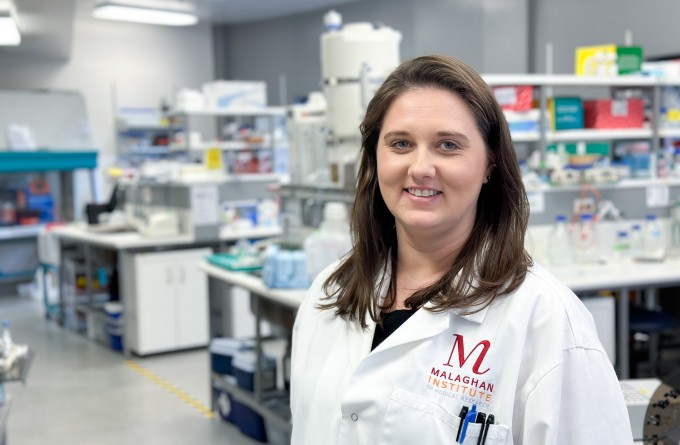
New research suggests hookworms could offer protection from severe Covid symptoms
14 August 2023
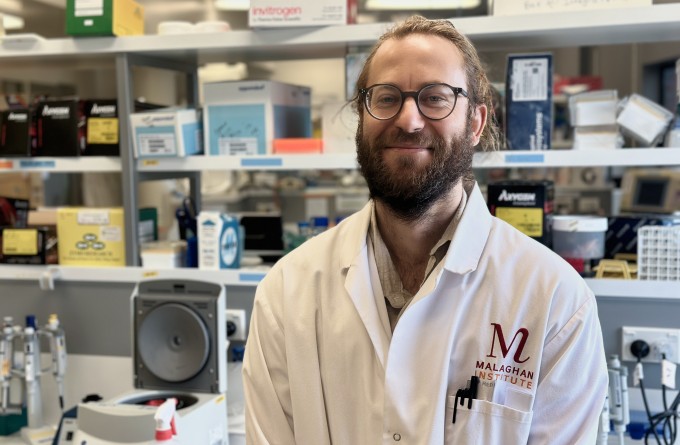
Scientific breakthrough harnesses mRNA technology to develop powerful malaria vaccine
21 July 2023
